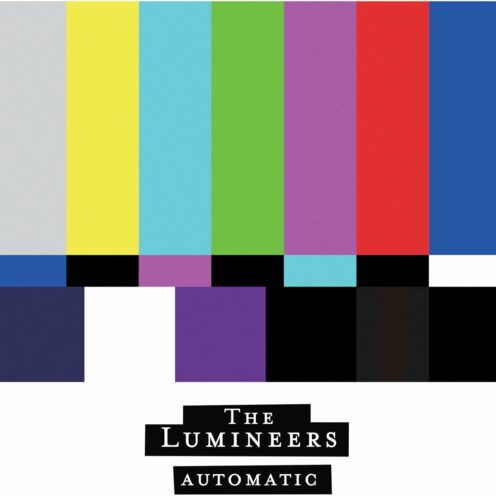
Few bands are as steadily consistent as The Lumineers. The band has returned on the cusp of their successful fourth studio album, 2022’s Brightside, with the fresh sound found on Automatic. The record ends up being some of their strongest work since their sophomore effort (Cleopatra) and hones in on the live elements of their sound that came through so nicely on their recently released live album, Live From Wrigley Field. The Lumineers know what they’re good at, and they accentuate those parts of their music into another strong showing here. Led by the core members of Jeremiah Fraites (drums, percussion, piano) and Wesley Schultz (vocals, guitar), Automatic cuts to the heart of what it means to be a passionate band that makes meaningful songs for the masses. The Lumineers will be gearing up for supporting Automatic on a large-scale stadium tour this Summer to showcase what makes their band such a marquee act.
The set starts off with lead single, “Same Old Song” that while hinting that this a path that’s already been traveled thus far from the indie folk rockers, Schultz’s vivid lyrics prevent this from occurring. The second verse of, “In the braille where the top is black / Like a starving mouth for the answer / You said the boulevard was not that bad / And they jacked the van with the instruments / In the broad daylight / They popped the trunk and left the keys behind / The cops pretend to care / I’ll never see my mom’s guitar again,” brings focus into the helpless feeling of losing a family heirloom that just happens to be a treasured guitar. The song has a fast-paced beat before lending itself to a sing-along chorus.
The paint-driven “Asshole” continues down the path of self-exploration and recounts the complexities of relationships as we all evolve. The chorus of, “First we ever met / You thought I was an asshole / Probably correct / But I can see your shadow,” comes to the realization that we’re far from perfect, and how our moods can affect others in their assessment of us. After a brief instrumental song simply titled “Strings”, we arrive at the title track that starts off a bit somber in Schultz’s lyrical delivery over a piano, before kicking into a different gear in the floaty chorus. The second verse of, “Take your victory lap / Running on an empty track / The circle always brings you back / Keep it in the lane / And the nursery rhymes / You learned when you were only five / They’re darker than the dead of night / We sing ’em just the same,” is filled with dark lyrical metaphors, yet the imagery is clear-cut.
The steady guitar riffing found on “You’re All I Got” is cut right from the same cloth that The Lumineers have made their name on, yet the bridge of “Business trips your daddy’s gone away / Will he ever make it back to base / Frozen handshake, rip the band-aid / Blame yourself for what you didn’t say” recounts the mistakes we make in our lives that we have to live with when we don’t get to say the things we’ve been longing to. “Plasticine” features a cool, reverberating guitar sound to each chord, while Schultz remains ever-captivating in his crisp vocal delivery. While “Ativan” features a simple, yet beautiful chorus of “If I can’t make you happy, then nobody can / Then nobody can, your sweet Ativan / If I can’t make you happy, then nobody can / Then nobody can, then nobody can,” that laces the lyrical melody over the same notes on the piano for emphasis.
”Keys On The Table” is a song about where to turn to when you’ve lost faith in the world around you, as the last notes echo with the lyrics of “And if you’ve lost the faith, boy / Leave your keys up on the table / Everybody knows…” It’s a somber reminder of the fleeting way we all feel in the news cycle today, and is easily relatable. “Better Day” offers up a stark contrast to the aforementioned song as Schultz offers up a bit of comfort as he longs for a rosier outlook on the first chorus of, “Dreaming of a better day / Watching porn and real estate / Gold and glory got away / Dreaming of a better day.” Another instrumental song of “Sunflowers” sets the stage for the closing statement of “So Long.” The song is a sprawling, near-five minute display of everything The Lumineers have learned from this point in their career, and they go out on the right note here. The closing lyric of, “Maybe we’ll be famous when we die / So long, so long, so long” made me think of the legacy that musicians leave behind well after their last note has been played, and the pieces that others cling to as they make sense of their own legacy. The band may just be onto something here, as Automatic plays out as some of the band’s best material to date.
 Same Old Song
Same Old Song